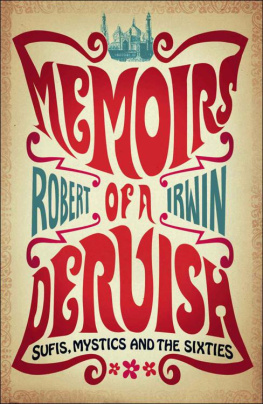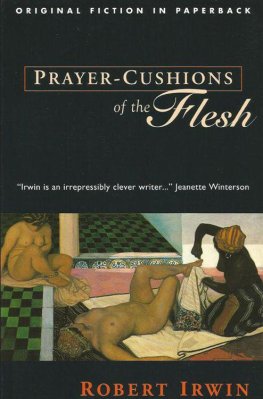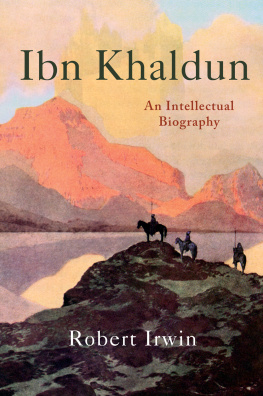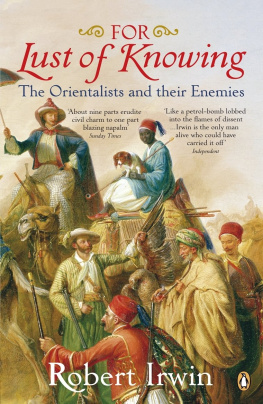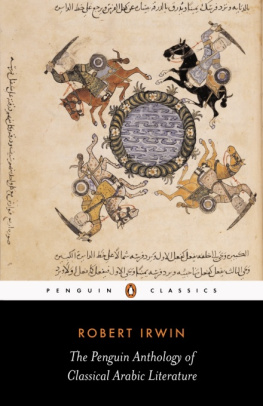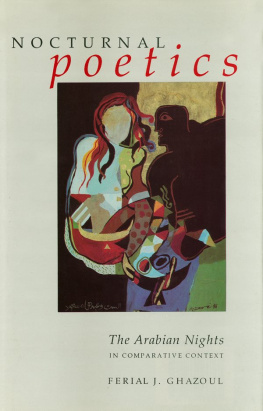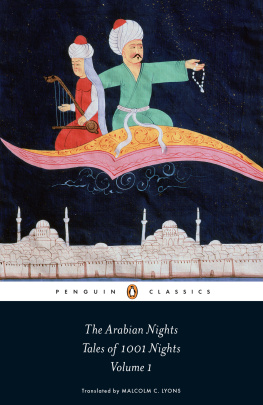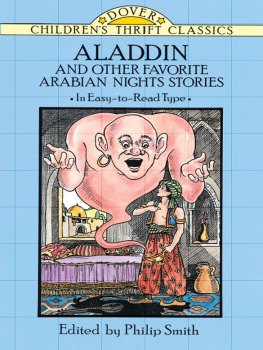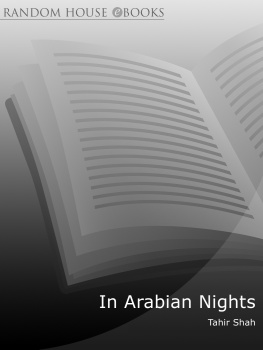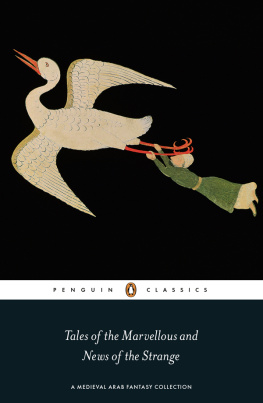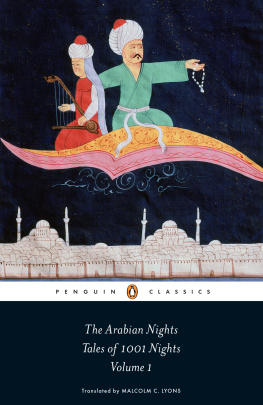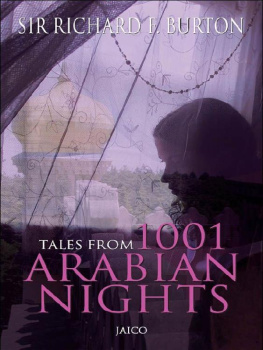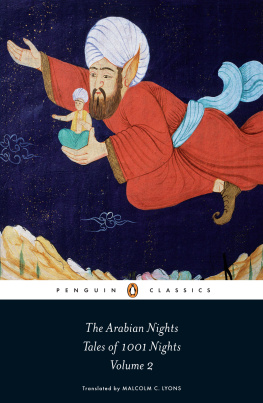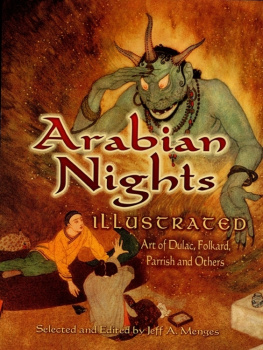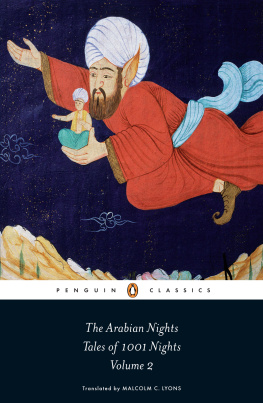Robert Irwin has taught Arabic and Middle Eastern History at the universities of Oxford, Cambridge and London. Publisher and novelist, he is also the Middle East editor for the Times Literary Supplement and a prolific author. His latest work is the highly acclaimed Night and Horses and the Desert: An Anthology of Classical Arabic Literature.
Irwin organizes his material like a good storyteller...he gives us the crystallized sum of The Nights: anecdote, history, moral fable, aphorism, story after story, wonder upon wonder. This monumental, infinitely faceted gem should be every writers bedtime sampler.
- Michael Moorcock, New Statesman & Society
Superlative...just the sort of relaxed, informative book that Edmund Wilson might have written had he grown interested in theMiddle Eastand its early literature.
- Michael Dirda, WashingtonPost
A generous and erudite book...Were in the company of someone who loves The Arabian Nights, and who has generously shared that love with us through this companion.
- Michele Roberts, Independent on Sunday

Reprinted in 2010 by Tauris Paperbacks
6 Salem Road, London W2 4BU
175 Fifth Avenue, New York NY 10010
www.ibtauris.com
In the United States of America and in Canada distributed by
Palgrave Macmillan, a division of St Martins Press
175 Fifth Avenue, New York NY 10010
Copyright Robert Irwin, 1994, 2004
First published by Allen Lane, The Penguin Press 1994
Cover image: The Scribe by Ludwig Deutsch, Oil on panel, signed and dated 1911. 20 x 14
1/2 inches. Reproduced with kind permission of Mathaf Gallery Limited.
The right of Robert Irwin to be identified as the author of this work has been asserted by the author in accordance with the Copyright, Designs and Patents Act 1988.
All rights reserved. Except for brief quotations in a review, this book, or any part thereof, may not be reproduced, stored in or introduced into a retrieval system, or transmitted, in any form or by any means, electronic, mechanical, photocopying, recording or otherwise, without the prior written permission of the publisher.
ISBN 978 1 86064 983 7
eISBN 978 0 85773 006 0
A full CIP record for this book is available from the British Library
A full CIP record for this book is available from the Library of Congress
Library of Congress catalog card: available
Preface to the Second Edition

Years ago I used to play on a classic Williams pinball-machine, Tales of the Arabian Nights. As I fired off one silver ball after another, I would gaze at the filmic iconography of The Arabian Nights spread out on the machines gaudily painted playbar. That iconography, divorced and free-floating from particular stories, will register with people who have never opened the book of the Nights: the Rocs giant egg, harem girls in diaphanous trousers, hook-nosed men wielding scimitars, genies, minarets, the Cyclops, the prince disguised as a beggar, the basket full of serpents, the rope which turns into a ladder, the all-seeing eye. This visual clutter of oriental knick-knacks can be put to any purpose. In the West today the Nights chiefly serves as a kind of reservoir of images and story-fragments that can be recycled in films for juvenile audiences.
In the modern Middle East, Sheherazade, the story-teller of the Nights, has become the beguiling icon of a great cultural heritage which rather less charming political figures have sought to claim as their own. Abu Nuwas Street in Baghdad, which runs along the edge of the Tigris, takes its name from a real-life ninth-century poet and libertine who features as the protagonist in several stories of the Nights. The Sheherazade Monument is situated between Abu Nuwas Street and the river. Mohammed Ghanis bronze statue, commissioned by the Bath regime, shows Sheherazade talking for her life in front of the negligently reclining despot and serial killer, Shahriyar. (It is possible that Sheherazades plight may have struck a chord with some of those who walked past her monument.) Elsewhere, on a Baghdadi traffic intersection there is a statue of Morgiana the slave girl, pouring boiling oil into the jars that concealed the forty thieves (in the story of Ali Baba). More recently, American troops, who broke into one of Uday Husseins palatially furnished love-nests in the city, discovered in the bedroom a fresco of Sheherazade playing a lyre. I do not know if Uday Hussein gave any thought to the decorative iconography of his pleasure palaces, but it may be that the Nights frame story of Sheherazade and Shahriyar, a fable about a despot and how his mingled blood-lust and boredom had to be assuaged by a desperately talking woman, appealed to Uday Husseins dark humour.
In modern times, in both the West and the Arab world, the magnificent cultural riches of The Arabian Nights have been reduced to a scant handful of clichd and kitsch-laden images. Most people in the West are familiar only with the grim Arab world of the headlines Taliban, fatwas, suicide bombers, Intifada, disputes over water rights, OPEC meetings, demonstrations, arrests and executions. Even those who have actually visited the Middle East on business may return with memories only of long waits for visas, charmless modern hotels, scorchingly hot and dusty highways and sugary local imitations of Coca Cola. But there is another Middle East to be found on the shelves of any decent library in the Western world, a territory compounded of enchantment, romance and mystery.
The Arabian Nights: A Companion, which is now, some ten years on, being republished, owes its inception to sheer boredom. When, as a postgraduate at London Universitys School of Oriental and African Studies, I started to study Middle Eastern history and Islamic culture, I was struck by how very dull most of the stuff was that I read. There were exceptions of course. However, what I mostly read were chronicles that recorded the treks of men with unpronounceable names to unspellable places and the pointless battles they fought there. As for the account of Arabic literary culture in English, this had a somewhat frowsty, almost Victorian feel, as the only accessible general account, A Literary History of the Arabs had been published by R.A. Nicholson in 1907.
Thinking that it would be good to wake things up a bit, I decided to return to The Arabian Nights, the book that, with its tolerant princes, combative women, wily robbers and mysterious sorcerers, had lit up my imagination as a child. The Nights was the product of a medieval culture that was confident, tolerant and pluralist. The Christian broker and the Jewish physician are as much at home in the Hunchback cycle of stories as the Muslim tailor and barber. Of course, the Muslim faith was important. It pervades the stories of the Nights and in some cases even dominates them. Those who venture into the world of the Nights learn of the doom of mighty dynasties by the decree of Allah; they are taught to be patient in suffering and to trust in Allah; and they are told of the inspiring deeds of Sufis and other holy men. Piety and Prayer in The Arabian Nights is a book that could and should be written. However, it is also evident that the Muslim faith that pervades the Nights is not the maximalist version favoured by modern Islamists. The story-tellers and their audiences took it for granted that most of the protagonists in stories of the
Next page

